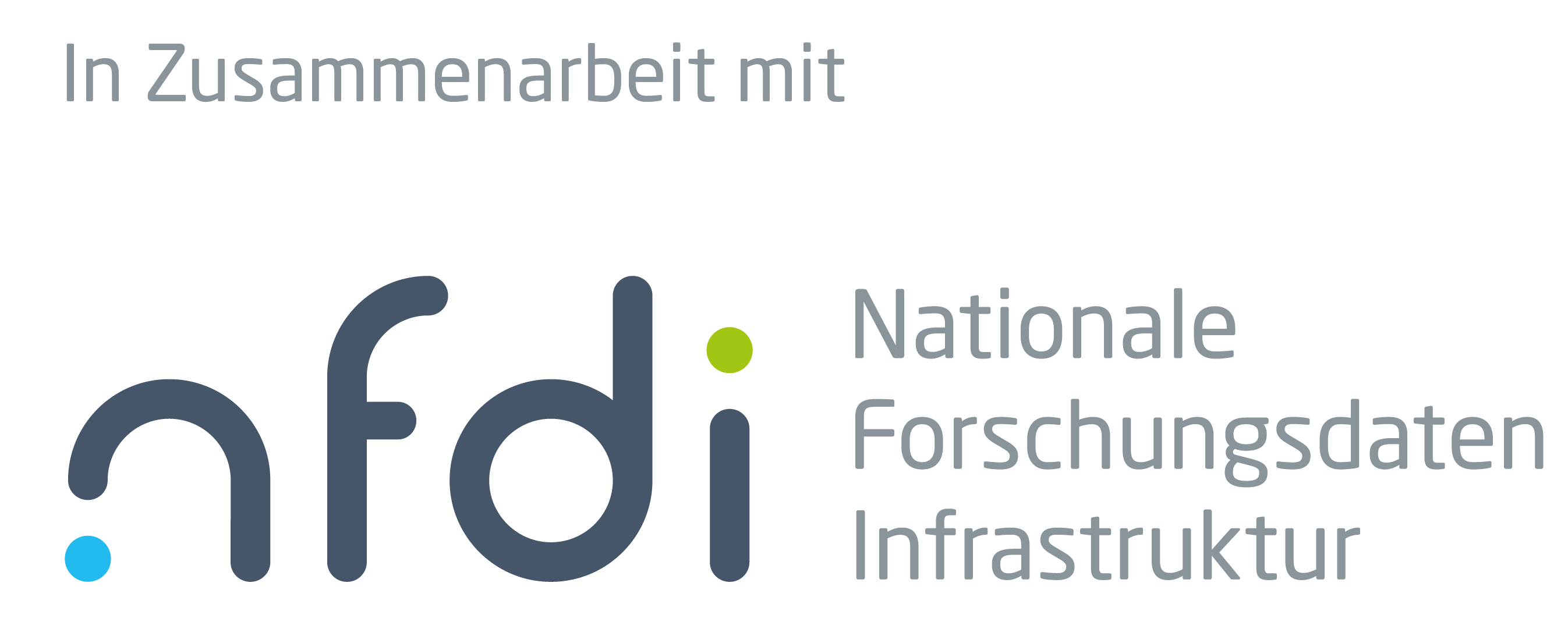Initiatives and associations
As research data varies from discipline to discipline, we have compiled a list of consortia and associations that specialise in specific subject communities or are part of certain national initiatives.
NFDI
The National Research Data Infrastructure (NFDI) promotes and enhances the infrastructure for research data in Germany with the goal of systematically unlocking, networking, and making valuable datasets from science and research accessible in a sustainable and high-quality manner for the entire German science system.
Source:
https://www.nfdi.de/?lang=en

Consortia
The subject-specific expertise of the NFDI is developed within the consortia of the NFDI. The NFDI comprises 26 consortia and the association of consortia, Base4NFDI. The consortia, selected through a science-guided process by the DFG, cover diverse scientific disciplines, ranging from cultural, social, humanities, and engineering sciences to life and natural sciences.


